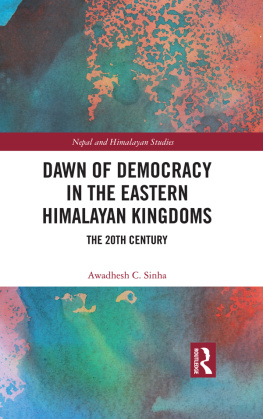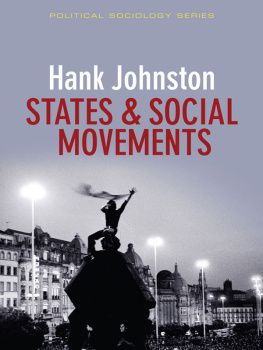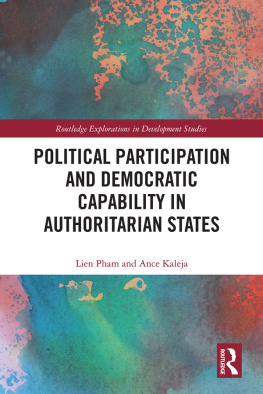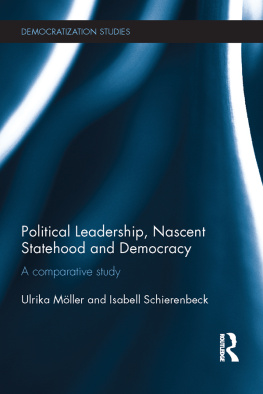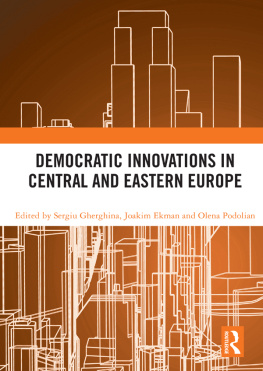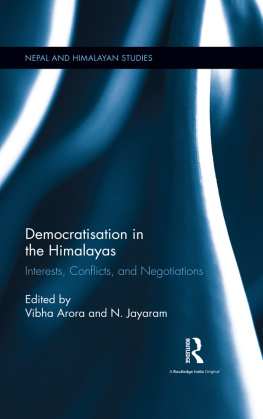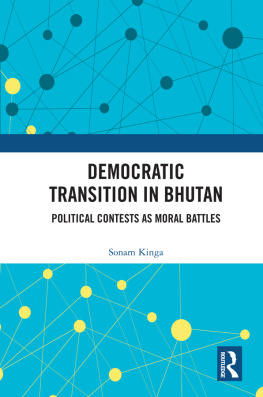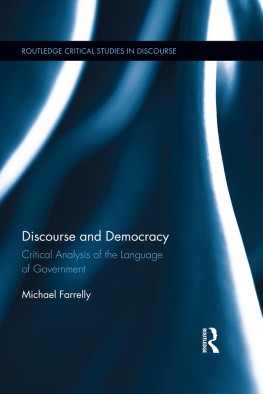First published 2019
by Routledge
2 Park Square, Milton Park, Abingdon, Oxon OX14 4RN
and by Routledge
52 Vanderbilt Avenue, New York, NY 10017
Routledge is an imprint of the Taylor & Francis Group, an informa business
2019 Awadhesh C. Sinha
The right of Awadhesh C. Sinha to be identified as author of this work has been asserted by him in accordance with sections 77 and 78 of the Copyright, Designs and Patents Act 1988.
All rights reserved. No part of this book may be reprinted or reproduced or utilised in any form or by any electronic, mechanical, or other means, now known or hereafter invented, including photocopying and recording, or in any information storage or retrieval system, without permission in writing from the publishers.
Trademark notice : Product or corporate names may be trademarks or registered trademarks, and are used only for identification and explanation without intent to infringe.
British Library Cataloguing-in-Publication Data
A catalogue record for this book is available from the British Library
Library of Congress Cataloging-in-Publication Data
A catalog record has been requested for this book
ISBN: 978-1-138-55040-7 (hbk)
ISBN: 978-0-429-40139-8 (ebk)
Typeset in Sabon
by Apex CoVantage, LLC

I have been wondering for some years why the democratic history of Sikkim has not been written as yet and why the history of democratic struggle of India has missed its chapter on Sikkim. I shared my misgivings with octogenarian political animal Chandra Das Rai some years back in one of my visits to Gangtok. And prompt came his response: Why dont you do it? Then I chanced to discuss the issue with the indomitable scholar of the region, Dr Kumar Pradhan at Siliguri, and he gave me great encouragement and hints on where to look for the source materials. It made me to think: was I qualified to do the justice to the theme? I expressed my doubts to him and he responded that I could try at least, as nobody had thought of doing so. I made a note of it and began working on the theme on my own. I recall vividly how various activists in the 1960s and early 1970s used to fondly relate their acts in the events of the 1940s, when placid Sikkim was stirred with the speeches of Tashi Tshering, Dimik Singh Lepcha, C. D. Rai and others; how the palace was gheraoed by the SSC volunteers; how its vice president, Namgyal Tshering, snatched the keys of the jeep from the Maharaj Kumar, forcing him to turn back to the palace; and, ultimately, how the short lived popular government was formed and dismissed. There were persons still alive who had participated in the movement, who had listened to the impassioned fiery speeches and who had dreamt of abolition of various types of slave labour imposed by the Kazis and the thikadars .
Similarly, much later, I learnt how the Nepali Congress was founded in Calcutta; procured arms from Kashmir, Hyderabad and Burma; and launched its guerrilla war in Nepal Terai in October 1950 and how the Delhi Agreement was hammered out, leading to formation of an interim government between the Ranas and Nepali Congress. Incidentally, my maternal uncles village in the Champaran district of Bihar was on the gateway to Nepal and they could still relate the events of the armed revolution being fought in the adjoining Terai and Tharu hat. And much later, I read biographies of B. P. Koirala and his elder brother, M. P. Koirala, confirming the details of those eventful moments from 1950 to 1960. I also chanced to meet briefly Panishwar Nath Renu, publicly in- charge of Mukti Vahini, who had given me an idea how the volunteers of Nepali Congress had fought the war of liberation in eastern Terai of Nepal. I revisited the eventful days of 1950s when the Bhutan State Congress came into being, launched its Satyagraha and reached its pinnacle. As I had superannuated from my service in the university, my limited resources were not adequate enough to undertake such an assignment, necessitating visits to archives and knowledgeable respondents. Thus, I waited for the right moment to come my way.
An opportunity arrived when the Indian Council of Social Science Research (ICSSR) in New Delhi awarded me with a National Fellowship in 2012, and I collected a variety of related archival data and visited knowledgeable activists who were witness to those eventful historical landmark dates. The present manuscript is a byproduct of my National Fellowship report on the Federation of the Himalayan Kingdoms and Greater Nepal conducted at Nehru Memorial Museum and Library (NMML), New Delhi, in 201214. However, the materials presented here are not parts of the report submitted to the patrons. And in fact, it turned out to be an independent work in its own right.
A number of individuals and institutions came forward to help me in my study in a variety ways; it is impossible to mention them individually and I record my sense of appreciation to all of them. However, it will be unbecoming of me not to mention some of my main benefactors. First all, I value ICSSR New Delhi for the award of the National Fellowship for the study and its generous sponsorship to my previous studies since 1971, which created a lifelong interest in me for things Himalayan. Second, the Nehru Memorial Museum and Library, New Delhi, its director and the staff were gracious enough to provide me with the most congenial locale for the study by affiliating me with NMML. Third, in Sikkim, something of a second home, nonagenarian C. D. Rai has been a living reference point for my work and for that, I shall ever be obliged to him. Furthermore, Nandu Thapa, former member of the Lok Sabha, Prem Das Rai, worthy son of C. D. Rai and member of the Lok Sabha, the scion of the legendary Kashi Raj Pradhan, Advocate Bhaskar Raj Pradhan, my old associate Ash Bahadur Subba, the Vice Chancellor T. B. Subba and his colleagues in Sikkim University provided instant support and academic ambience in Gangtok for dialogue and discussions, for which I shall ever be grateful to them.
I value and depend on the decades long academic collaboration and dispassionate criticism of Prof. Tanka Bahadur Subba, anthropologist from North Eastern Hill University, Shillong. Fourth, colleagues such as Prof. B. P. Misra at the Centre for Himalayan Study, professor of Nepali, Ghanshayam Nepal, North Bengal University, Darjeeling, noted historian the late Dr Kumar Pradhan, Siliguri, Dr Rajendra Dhakal and Advocate Anmol Prasad, Kalimpong, were spontaneous source of support to me. Next, from Bhutan, I was fortunate enough to draw on insightful details from late Paras Mani Pradhan and his Phuntshilong- based son, Indra Mani Pradhan, and the author activist, Dr D.N.S. Dhakal. Fifth, in Kathmandu, distinguished scholar and bibliophile late Shri Kamal Mani Dixit of Madan Puraskar fame and his family provided me home, Shamik Mishra, Director, Madan Puraskar Pustakalaya for source material support and Drs Shriram Sharma and Deepak Thapa of Social Science Baha for their hospitality during my field study. Professors Prayagraj Sharma and Lok Raj Baral, columnist C. K. Lal, sociologist Udhab Pyakurel and others were of great assistance in my research in a variety of ways and I do appreciate their invaluable assistance in my work. I have re- read the text of the manuscript with all seriousness once more in the light of the reports of the reviewers given to me by the publisher, and needless to say I have immensely benefited by their valuable comments. However, I hasten to add that I stand responsible for errors, misjudgements and any unintended lapse on my part and offer my instant sincere apology for that. And lastly, nearer home, Krishna, my better half, on whom I unavoidably depend and instantly make all sorts of demands, provided me with most congenial and amiable home to work on vexing issues on hand. And lastly, from my publishers side, I am extremely fortunate to have an editor in Kate Fornadel, who patiently chiselled ideas even from my uneven expression. I thank her and the team involved in the production of the book.

